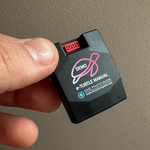As a newly certified diver, we are sure you’re excited to get out there and start exploring the world’s oceans. One of the most important things to remember as a new diver, or even an experienced diver, is safety first. We know you learned so many new things in your Open Water program that it may be hard to remember them all. So, we came up with this list of the most fundamental safety rules every diver should incorporate on each dive.
Do Your Pre-Dive Buddy Check
Your buddy check may be the most critical aspect of your dive. No matter how seasoned a diver is, they should always do a buddy check before every single dive. This is where you will catch any gear malfunctions before you enter the water, make sure your air is on and full, and become familiar with your buddy’s equipment. It takes less than a minute to go through your check, so there really is no excuse to ever skip it.
Always Have an Emergency Assistance Plan
Whether you are diving half a world away or just down the street from your home, you should always have an emergency assistance plan in place. Your emergency assistance plan does not have to be super complex or overly detailed, but it should cover any necessary information you would need should an emergency arise. Things to consider include knowing where to access emergency oxygen and a first aid kit, who to call for emergency assistance, where the nearest hyperbaric chamber is, etc. If you are diving locally, you may know all of these answers off the top of your head; however, you may need to do some research ahead of time to be prepared if you are traveling.
Never Dive Alone
Unless you are specifically trained in solo diving, never go diving alone. This may sound like a no-brainer, but you would be surprised at how tempting it can be to stay down alone “just for a little while” after your buddy runs low on air or to make a quick second dive by yourself when your buddy doesn’t feel like making the second dive. Even diving in a group without a designated buddy significantly decreases your chance of a successful rescue if you have an emergency. Always make sure you dive with a designated buddy each and every time.
Never Dive Congested
Whether you have a minor cold or severe allergies, you should never dive congested. No matter how badly you want to make the dive, compromising your safety is never worth the risk. Being congested will make it nearly impossible to equalize your ears and make you susceptible to an eardrum rupture if you ignore the discomfort and continue to try. Some divers may think taking a decongestant will get them through the dive; however, this is also very dangerous. If the medication wears off during your dive, you could end up with a reverse sinus squeeze which can cause severe damage.
Dive Within Your Limits
As an Open Water diver, you are limited to a certain maximum depth, and for good reason. To dive deeper than your certification allows, you need more training and experience underwater. It is your responsibility to ensure that you do not dive deeper than your limit. If you would like to dive deeper, sign up to become an Advanced Adventurer.
We could go on and on about diving safety. It is one of the most important aspects of diving. As a new diver, however, if you stick to this list of essential safety guidelines, you will be ready to face any diving adventure that comes your way.
The post Dive Safety 101 – A New Diver’s Guide to Dive Safety appeared first on Dive SSI.
Read MoreDiving, Start Diving, dive safety, dive safety 101, divers guide, safetyDive SSI

